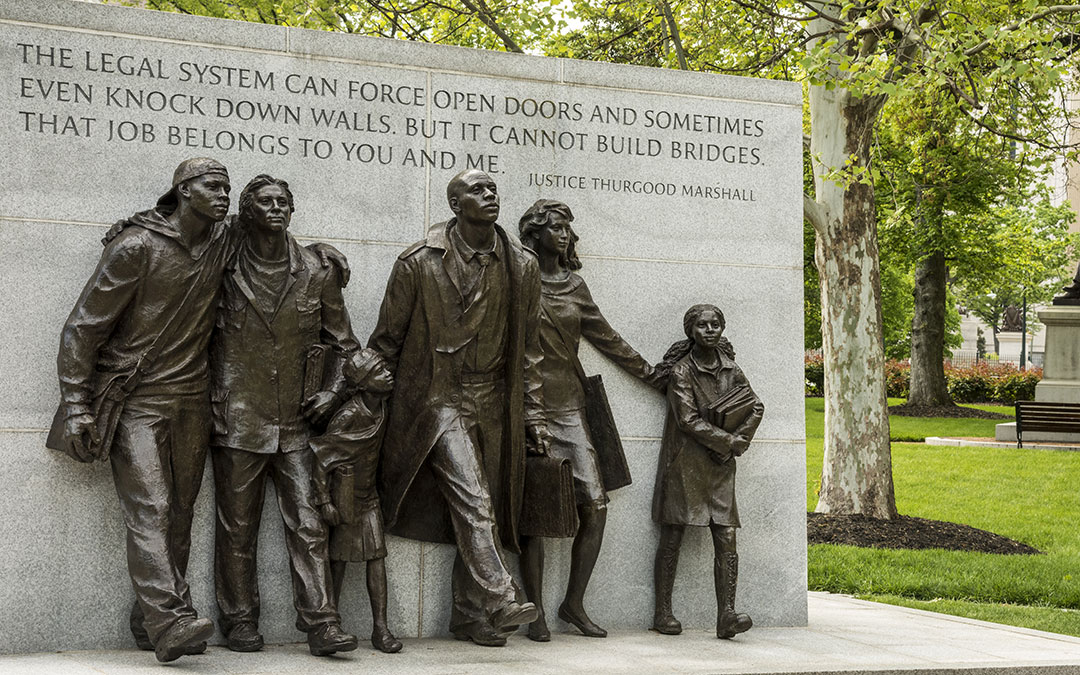This week, a small town in Indiana was thrust into the news. Knightstown’s previous claim to fame was the Hoosier Gym, the cinematic home court of the Hickory Huskers in the movie, “Hoosiers.” But this time, Knightstown made news when one of its citizens, represented by the ACLU, sued the town to remove the lighted cross from atop the town Christmas tree. He claimed the religious symbol violated his first amendment rights. Within a couple of days, the town council had the cross removed from the tree, probably because they didn’t want to (or perhaps because they couldn’t afford to) spend the resources to contest the lawsuit.
Of course, many residents of the small town and beyond are outraged that the cross was removed. Others see this as a victorious protection of first amendment rights of everyone — a correction of the town’s unconstitutional “establishment” of a state religion, or what was perceived as such.
Some were offended by the cross. Some are offended that it was removed. Some are offended by the news coverage. Personally, I find the snow that is coating that Christmas tree today very offensive — can we get rid of that, too?
I’m a Christian. I’m a Hoosier. I was raised in a small Indiana town a few miles east of Knightstown on the Old National Road. What do I think of all this? (This is where you can stop reading if you don’t care what I think about it.)
The thing about being offended — it’s personal. It’s a matter of perception. I can’t tell you what you should find offensive, I can’t predict what will offend you, and just because you might find something offensive and I don’t, doesn’t make you wrong. There are things on which we, as a society, or even humanity as a whole, have agreed are generally offensive — murder, abuse, genocide, and reality TV, for examples. But for the most part, offense is a subjective feeling, personal to each of us. A lot of people find my sense of humor to be uplifting, side-splitting, and generally hilarious, while other people are wrong.
I’ve wondered, though, why some people get so upset over things like nativity scenes, crosses, or display of the Ten Commandments on public (or government) premises. I think it’s because people are offended not only by the symbols, but by Christians in general — specifically, the hypocrisy and attitude of superiority that we sometimes demonstrate. In fact, it isn’t Christianity so much that offends people — it’s our poor representation of it that provokes. If Christians (and I count myself in this group) were as passionate about demonstrating the type of love Jesus taught and commanded as we are about symbols and displays, we could really change the world.
- Instead of complaining because the county courthouse removed the nativity display, make room in your life for someone who needs a friend. There was no room in the inn for the blessed family. Is there room in your heart for someone in need?
- Instead of protesting the removal of the Ten Commandments from a government building, show that you keep them in your heart by honoring them. “Make no graven images,” is one of those commandments. Do we worship a reproduction of the stone tablets or do we worship the God who later put that law in our hearts?
- Do you get offended when someone wishes you, “Happy Holidays,” instead of, “Merry Christmas?” We like to chant, “Keep Christ in Christmas!” but God wants us to hide His Word (Jesus Christ), in our hearts.
- Rather than condemning the choices of others with boycotts, protests, and picket lines, commit to living out what Christ held up as the greatest commandments of all. “The most important commandment is this: Love the Lord your God with all your heart and with all your soul and with all your mind and with all your strength. The second is this: Love your neighbor as yourself. There is no commandment greater than these.” (Matthew 12:28-31)
Christ said plainly that the most important commandments are to love God and to love others. But how do we demonstrate that we love God above all else? Christ also gave a very clear answer to that question in John, 21:15-19, when he reinstated Peter’s faith. In case you don’t know the story of Peter denying Christ, three times, as Jesus was being beaten and prepared for crucifixion, Peter was accused of being one of the disciples. And three times, he swore he didn’t have anything to do with the ministry of Jesus. I understand that — I don’t know how my convictions would stand up to the threat of a painful, humiliating execution. But when Peter realized what he had done, he wept bitterly. He was so ashamed of his actions and how he had failed to stand for Christ. You can read the tragic account in Luke 22:54-62, John 18:15-27, or Mark 14:66-72.
When Christ appeared to the disciples after conquering death and emerging from the tomb, I’m sure they were overjoyed to see Him. But if I were Peter, I’d also be ashamed. Did Peter avoid eye contact? Did Peter fear retribution or banishment from the inner circle? I have to imagine he did.
But what did Jesus do for him? He lovingly reinstated Peter. For every time Peter had denied Christ (3 times), Jesus asked Peter, “Do you love me?” It went like this:
Jesus said to Simon Peter, “Simon son of John, do you love me more than these?”
“Yes, Lord,” he said, “you know that I love you.”
Jesus said, “Feed my lambs.”
Again Jesus said, “Simon son of John, do you love me?”
He answered, “Yes, Lord, you know that I love you.”
Jesus said, “Take care of my sheep.”
The third time he said to him, “Simon son of John, do you love me?”
Peter was hurt because Jesus asked him the third time, “Do you love me?” He said, “Lord, you know all things; you know that I love you.”
Jesus said, “Feed my sheep.” (John 21:15-17)
Jesus told Peter (and all those who are called Christians) to demonstrate their love by feeding His lambs and taking care of His sheep. We demonstrate our love for Christ by loving others — by feeding the hungry, housing the homeless, visiting the sick and imprisoned, clothing the naked and cold. I notice Jesus didn’t say, “If you love me, then pray more. If you love me, then go to church every Sunday. If you love me, then memorize every word of the Bible.” None of those are wrong, but those are not the ways Christ commanded us to demonstrate our love for Him or others. None of those are what Christ asked of Peter in order to reinstate him after his denial.
To put these ideas together, Christ told us that the greatest commandment is to love the LORD your God with all your heart. Then, in the encounter with Peter, he explained exactly how we demonstrate that love — by caring for others. We show love not by picketing, not by protesting, not by boycotting, but by caring for and tending to the needs of others.
It’s Not Too Late
I’ve been a Peter. I’ve failed to grasp the love of Christ and how to show it to others. I’ve chosen the law over love. And many times, either in word or deed, I have denied Christ. Any time we claim to represent Christ, but do so without love in our hearts, we deny Him and we give the world the wrong impression of our God. It is that wrong impression that is offensive to so many.
One of the things I’m least proud of is my mis-guided attempts when I was in my late teens to “fight” abortion. I’m ashamed to think of how many women I shamed, accused, angered, and scared as I stood with others, holding picket signs with pithy phrases and gory pictures in front of a Planned Parenthood office. I thought my means were justified by the ends if I saved a baby’s life. But what if my means also caused a hurt, frightened, possibly abandoned woman to believe that Christians (and Christ) are only interested in accusing, condemning, and humiliating people?
I use this example because it’s the best example I can think of in my own life of how I probably unintentionally hurt people in the name of Christ Jesus. It’s a personal example of how I misrepresented Him. It’s a conviction of how I denied Him.
What if, instead of condemning, I had sought to befriend a woman who could use one? What if I had listened attentively to how she got to a place where she had to consider this option in her life? What if I had provided practical assistance where she felt she had no other choice?
I was more willing to hold a sign than to hold a hurting woman’s hand.
But just as Christ reinstated Peter, He has offered me opportunities to learn from my mistakes and to try a better way — His way. Love.
How Can We Resist the Urge to be Offended?
Choose Your Battles
To repeat, offense is personal and individual. But if we as Christians are offended by the removal of a cross from a public Christmas tree but give little thought to the fact that in many countries, Christians may be imprisoned or executed for their faith, then our “offense meter” needs re-calibrated. If we are more offended when someone wishes us, “Happy Holidays,” than by issues like human trafficking, hunger, poverty, and injustice, then I say we are an offense to our God. Don’t get so offended by trivialities that you divert attention from the things of utmost and eternal importance. Don’t allow the enemy that foothold.
Demonstrate Christ-Like Humility
Jesus Christ, our LORD, was betrayed by a friend, arrested without cause, beaten mercilessly, spat upon, humiliated, and executed publicly in a most brutal way, but He was not offended. He called upon His Father to forgive the very people who were inflicting the pain upon Him. He did not ask God to repay their brutality (which would have been my instinct). Led like a lamb to the slaughter, our LORD demonstrated humility, which I believe is the very antithesis of offense. It’s my human nature and pride that is easily provoked. The Holy Spirit in me is long-suffering, not easily angered, and keeps no record of wrong. Pride is easily offended, humility is not.
Be Filled with the Holy Spirit
I quoted a portion of Psalms 119, specifically verse 11, “Thy Word I have hid in my heart, that I might no sin against You.” But later in the same chapter, verse 165 reads, “Great peace have they which love thy law: and nothing shall offend them.” If we are filled with the Holy Spirit, if we have the Word and law of God in our heart, then nothing can offend us. The NLT translation of verse 165 reads, “Those who love your instructions have great peace and do not stumble.” Don’t let these distractions cause you to stumble. Pray daily to be emptied of your human nature and to be filled with The Holy Spirit, the fruit of which is love, joy, peace, patience, kindness goodness, faithfulness, gentleness, and self-control. Offense is not listed among the fruit of the Spirit. If it’s sprouting in your heart, ask God to pull it out by the roots.We argue that a cross on a Christmas tree is not an “establishment” of religion by our government.
I would argue that it’s removal doesn’t diminish my faith either. Not unless I let it.

